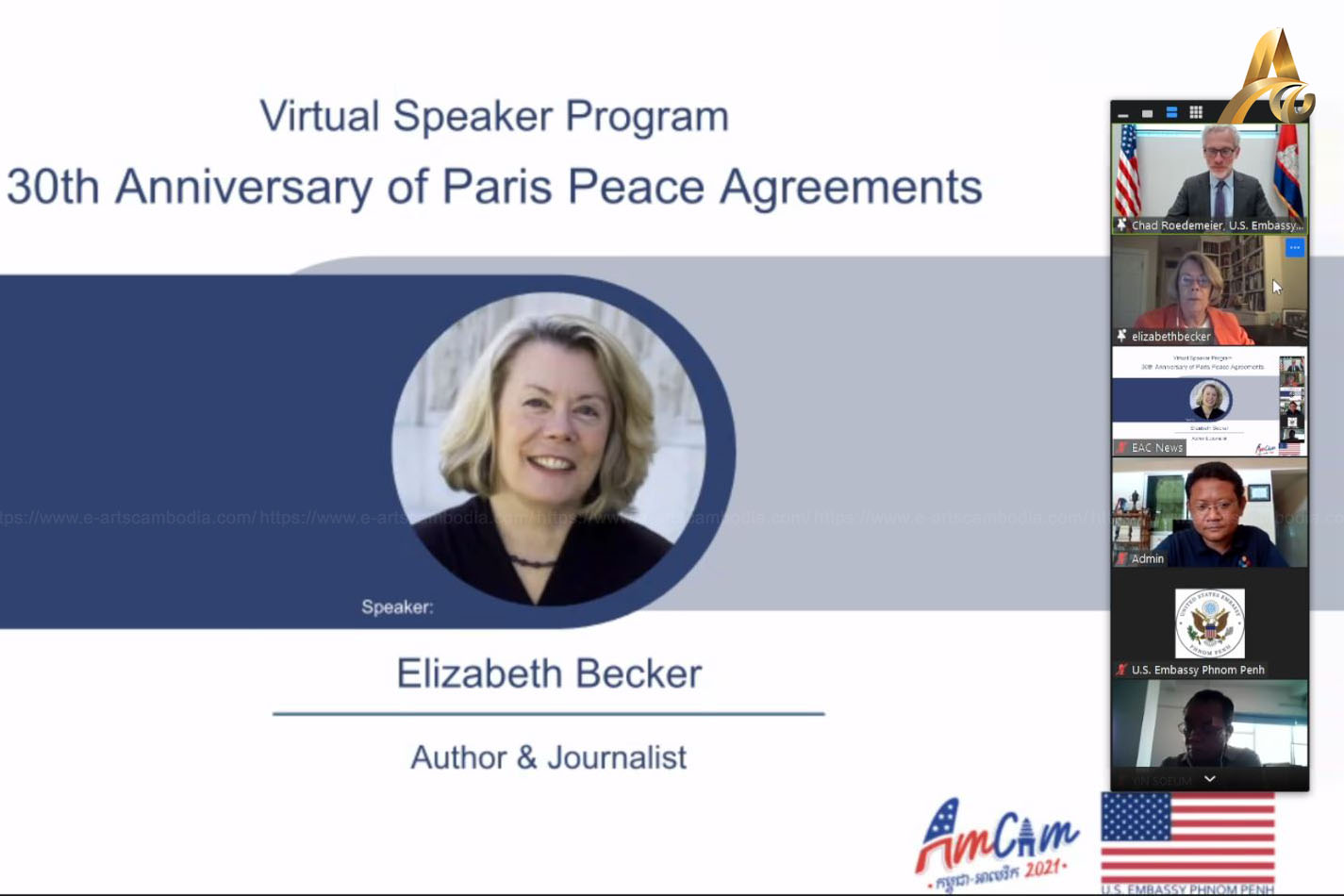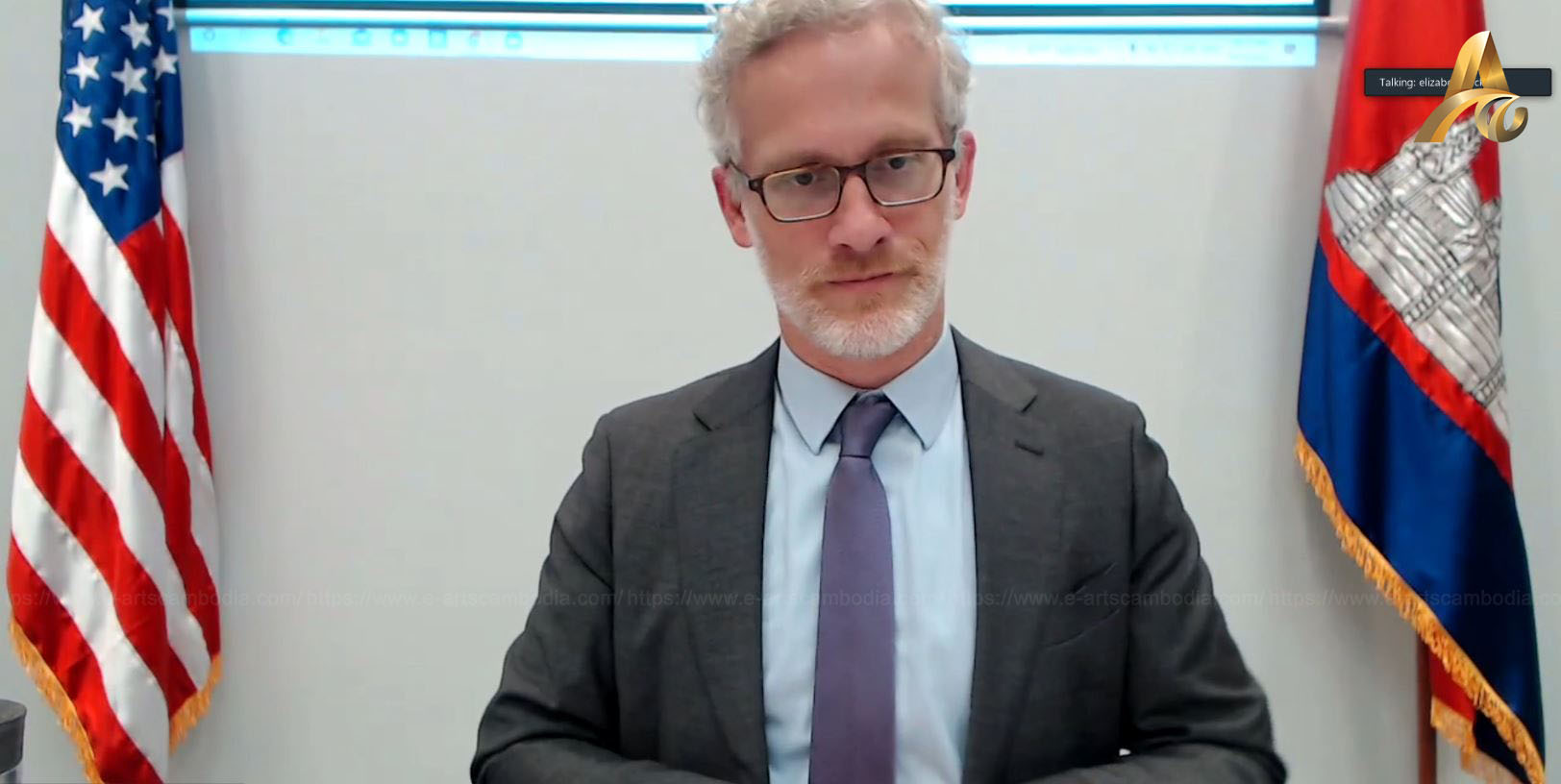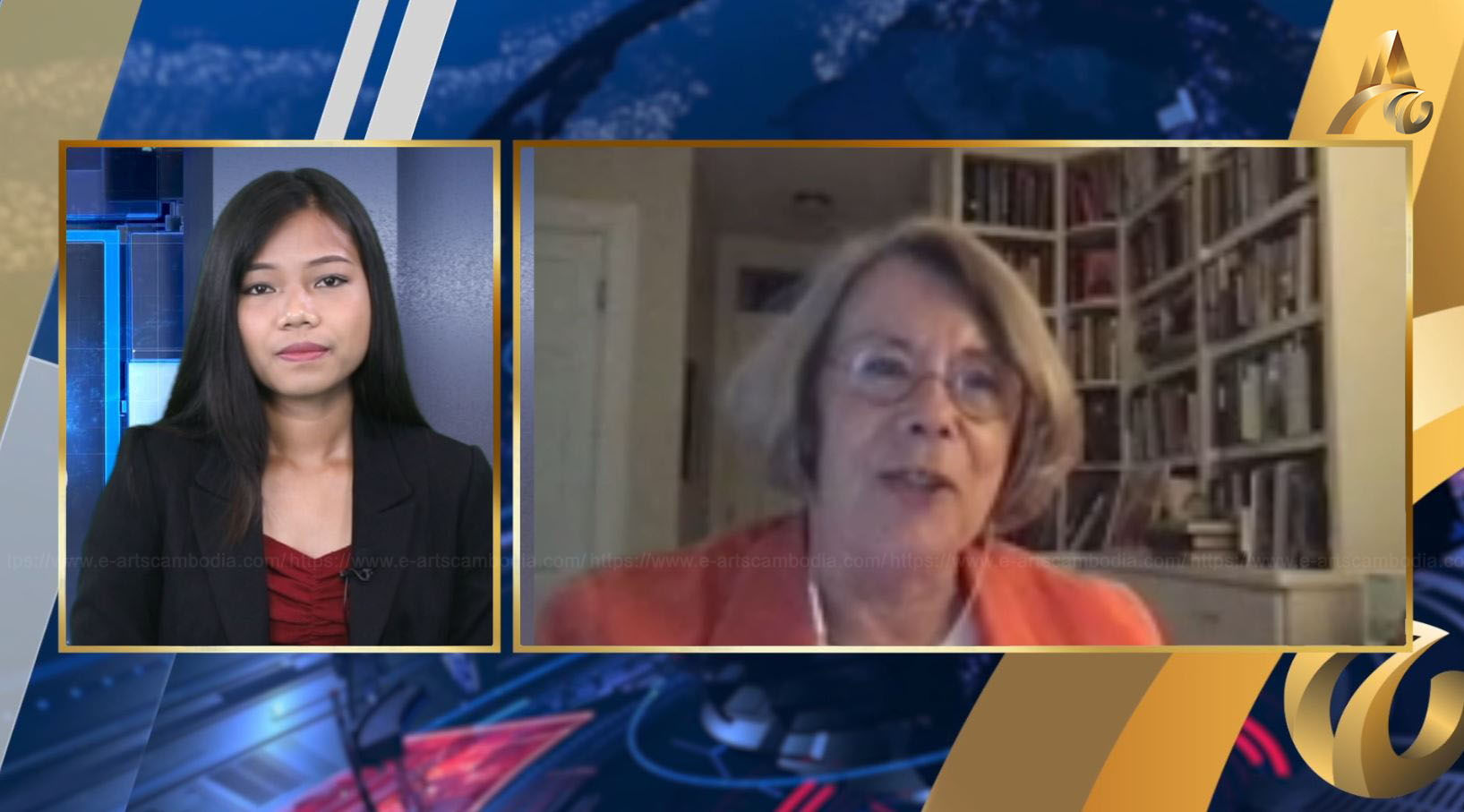Phnom Penh: In advance of the 30th Anniversary of Cambodia’s Paris Peace Agreement, the US Embassy in Phnom Penh is hosting a virtual speaker program. It’s discussing developments in the kingdom three decades after the historic agreement was signed. Thursday’s speaker was award-winning author and journalist, Elizabeth Becker.
Elizabeth Becker has detailed how Cambodia has developed after the Khmer Rouge. The United States Embassy, which hosted the program, says the “Comprehensive Cambodian Peace Agreement”, commonly referred to as the “Paris Peace Agreement” was signed by 19 countries on 23 October 1991 and is a “remarkable example of multilateral diplomacy that ended Cambodia's decades-long civil war.”
Becker says the peace accord started well in Cambodia. From being a picture of a war-torn country, Cambodia all of a sudden became a symbol of tourism with its beautiful attractions such as Angkor Wat. Becker recalled her own experience in France during the negotiation process:
“First and foremost, it ended the war. I cannot exaggerate how miraculous that felt. I was in Paris during this negotiation and I can tell you – it seemed mountains have to be moved to get everybody to agree. But they did agree and this is what they agreed to: that Cambodia would be in democracy guided by the rule of law; that the citizens would elect representatives in free and fair elections and those representatives would sit in the parliament; that the political system would have full respect for human rights; the judicial and the judiciary would be independent.”
But, in her opinion, that is not the country Cambodia is today. EAC News asked her if she thought Cambodia still has a fundamental right to freedom of expression, in accordance with the Paris Peace Agreement that was signed 30 years ago, especially during the pandemic:
“No, it doesn’t. That’s clear. Every week I read in the Cambodian press that so and so has been arrested because the Facebook post was considered not good for the security of the country. And the definition of what is good for the country keeps getting narrow and narrow and narrow. So, you don’t know if you can publish this, it’s over – a way over the police. And you see that demonstrations, freedom of speech on social media in the streets, it’s disappearing.”
Cambodian People’s Party spokesperson, Sok Eysan, told EAC News that it is Becker’s right to express her own opinion based on what she knows, but says the content of her statements is not linked to the reality of what is happening in the kingdom as she’s not physically here.
In response to recent accusations that it is clamping down on freedom of speech and protests, the royal government has repeatedly stated affiliation with a particular organisation or group cannot be a licence to break the law with impunity. More recently, Prime Minister Hun Sen has also said that the right to freedom of speech or freedom of expression cannot be more important than the right to life or the right to safety and security.
























